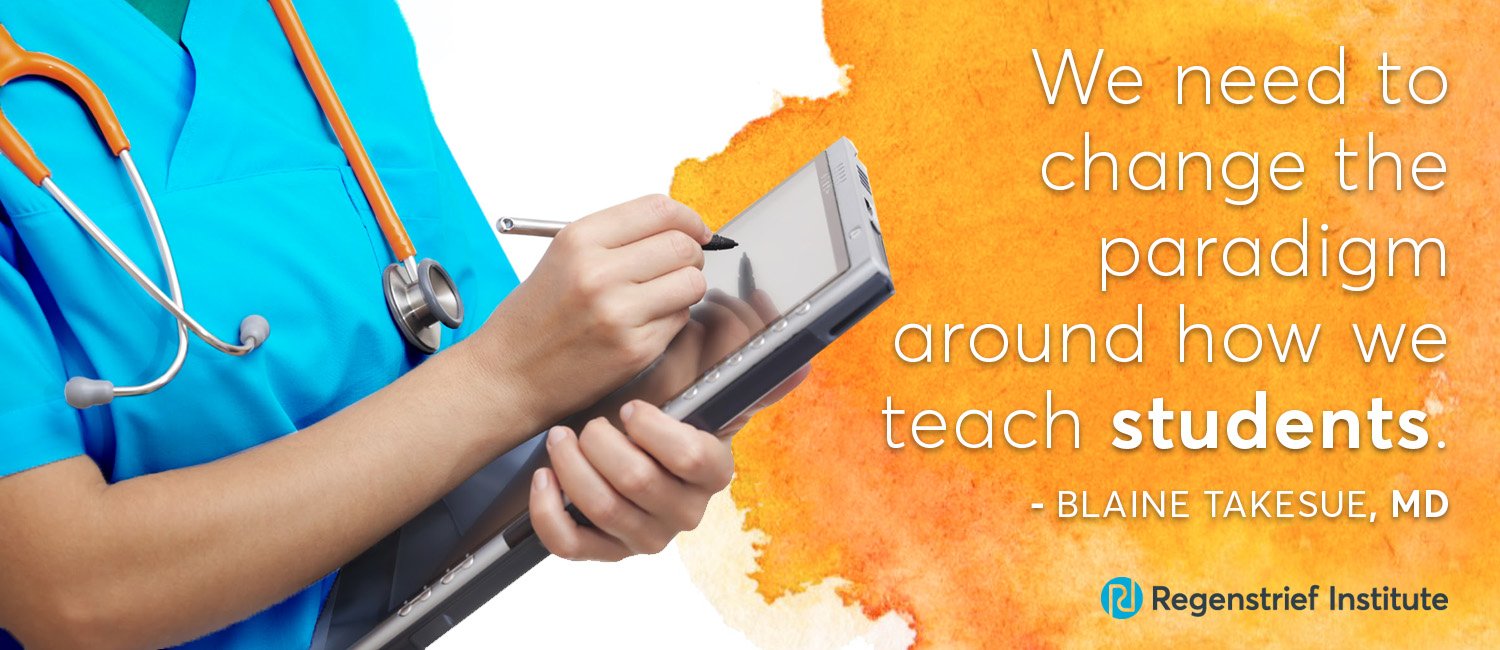RECLP featured on international podcast
In an international podcast, Regenstrief Institute researcher Blaine Y. Takesue, M.D., explained the challenges medical students face when it comes to learning electronic health records (EHR). He also offered a solution: The Regenstrief EHR Clinical Learning Platform (RECLP).
Dr. Takesue was interviewed by Innovations in Global Health Professions Education and featured on the organization’s podcast.
Dr. Takesue, who is also an assistant professor of Clinical Medicine at the Indiana University School of Medicine, says there are three major barriers that hinder medical students from accessing electronic health records. They include financial barriers, some institutions believe the training is cost prohibitive, so do not want to train their students to use their system, as well as legal barriers due to the risk of legal exposure. Finally, there are regulatory barriers. A few years ago, federal funding agencies disallowed faculty from billing for services based on parts of student-written notes; this led to many hospitals restricting students from entering notes in the medical record, since faculty had to write notes themselves anyway. This rule was recently reformed, but it is too early to see what effect the change will have on medical education.
This lack of access to EHRs can be detrimental. Dr. Takesue said, “If students don’t have access to an EHR at all, then they don’t know how to look up data, they don’t know how to filter data, and they don’t know what data is missing, or how to recognize bad data. There are a lot of aspects of patient care that they would miss out on.”
RECLP is a tool for addressing this lack of preparedness among medical students. The web-app currently contains more than 12,000 real patient records — all of which have been mis- or de-identified to protect patient privacy. The app allows students to see what real medical records look like, as well as being able to look up data and to practice putting in orders and notes.
“We have developed an application that allows students to do quality assurance, quality improvement, and population health kinds of exercises,” Dr. Takesue said. “It’s a query tool, and when you combine those things, some of the functionality is no longer just an EHR. That is why the name was expanded to a ‘learning platform,’ to allow students to learn all these facets of health information technology that they’ll need to take care of patients.”
RECLP was originally a research project funded by the American Medical Association in its “Accelerating Change in Medical Education” initiative, and was intended only for use within the IU School of Medicine. However, when other medical schools and nursing schools expressed an interest in the platform, Regenstrief researchers chose to broaden the project into what Dr. Takesue called “a scalable, more generalizable application” that could be used beyond the IU School of Medicine. RECLP is now being used at more than 10 schools and health organizations.
However, learning how to work with EHRs is one more subject to fit into an already full curriculum for medical students.
Dr. Takesue said: “We need to change the paradigm around how we teach students. It should probably not be around facts but around the process of learning. Teaching students they’re going to have to learn the rest of their life — because not only can we not cram that data into four years, but the medical landscape is changing at such a rapid pace that they will have to continue to learn long after they get their degrees.”
The explosion of data in the past several years will affect how health care professionals take care of patients and how health care educators prepare students.









